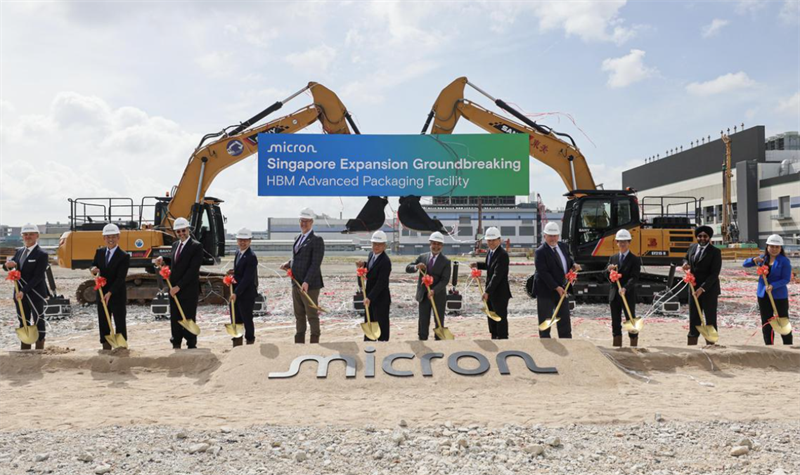On January 8, Micron Technology (Nasdaq: MU) officially broke ground on a $7 billion advanced high-bandwidth memory (HBM) packaging facility in Woodlands, Singapore. The new plant, Micron's first dedicated to HBM production in Singapore, marks a significant investment aimed at addressing surging demand for advanced semiconductors driven by artificial intelligence (AI) applications. Operations are slated to begin in 2026, with an expansion of capacity planned for 2027.
The facility will create 1,400 jobs initially, with potential expansion to 3,000 positions, spanning packaging development, assembly, and testing operations. It will sit adjacent to Micron's existing 3D NAND and DRAM fabs, bolstering Singapore's position as a global semiconductor hub.
Tapping into AI-Driven Growth
Micron CEO Sanjay Mehrotra highlighted the booming demand for AI-related technologies, noting that the HBM market is expected to grow from $4 billion in 2023 to over $100 billion by 2030. HBM chips, which stack layers of memory for greater data storage, faster processing, and lower power consumption, are essential for enabling AI workloads processed by GPUs and accelerators from companies like Nvidia and AMD.
“With the continued support of the Singapore government, this investment strengthens our position to address the expanding AI opportunities ahead,” Mehrotra said.
Singapore Deputy Prime Minister Gan Kim Yong praised Micron's investment, emphasizing its strategic importance for Singapore's semiconductor ecosystem and AI ambitions. “As we chart the next phase of Singapore's economic development, we look forward to deepening partnerships with companies like Micron to grow an innovation-led economy,” he remarked at the ceremony.

Strengthening Singapore's Semiconductor Leadership
The project underscores Singapore's critical role in the global semiconductor supply chain. The country produces one in 10 chips globally and one in five pieces of semiconductor equipment. Over the past two years, Singapore has attracted $18 billion in research, development, and manufacturing investments, according to the Economic Development Board.
Micron's collaboration with local educational institutions, including the Institute of Technical Education and polytechnics, aims to cultivate a skilled talent pipeline and create career opportunities across all levels.
Adapting to Global Trade Challenge
Acknowledging the geopolitical tensions and trade restrictions affecting semiconductors, DPM Gan highlighted Singapore's enduring advantages, including its skilled workforce, innovation capabilities, and pro-business environment.
Micron has invested over $30 billion in Singapore since 1998, building greenfield chip wafer fabs and expanding existing facilities. This latest investment in HBM packaging cements the country's position as a key node in the semiconductor supply chain while paving the way for sustainable growth in AI-driven technologies.
+86 191 9627 2716
+86 181 7379 0595
8:30 a.m. to 5:30 p.m., Monday to Friday
